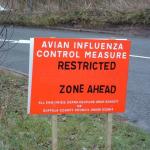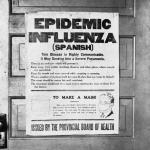When I joined the FDA to be its “biotechnology czar” more than 40 years ago, genetic engineering was a new concept.
Disease
Type 2 Diabetes and obesity are often found together, and it is exceedingly complex to disentangle the cause and the effect.
The calamitous global outbreak of COVID-19 has sparked intense scrutiny of its origins.
Join Cameron English and Dr. Chuck Dinerstein on Episode 103 of the Science Dispatch podcast as they discuss:
John raised concerns about avian flu outbreaks and the continued availability of raw milk.
The Lancet undertook an ambitious mission by assembling a commission of 58 experts from diverse geographies and fields of medical and scientific expe
After at least 66 documented cases of humans infected with bird flu – which is surely an undercount — the first death was just reported.
“The Terrorism Warning Lights Are Blinking Red Again,” according to former CIA Deputy Director Mike Morell, who delivered that message on CBS’ “
“Alcohol is a well-established, preventable cause of cancer responsible for about 100,000 cases of cancer and 20,000 cancer deaths annually in the United States – greater than the 13,500 alcohol-associated traffic crash fatalit












